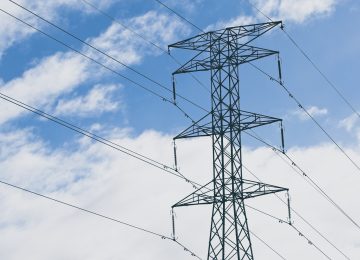A new analysis has exposed a significant lack of transparency among India’s top listed companies regarding their direct environmental impact.
The report was compiled by the Council on Energy, Environment and Water (CEEW), in collaboration with the Indian Institute of Corporate Affairs (IICA). The report, titled Advancing Corporate Climate Action through Emissions Disclosures in India, analyzed filings under the Securities and Exchange Board of India’s (SEBI) Business Responsibility and Sustainability Reporting (BRSR) framework. It found that a crucial portion of these firms are ignoring mandatory climate disclosure requirements for the financial year 2024.
Compliance gap exposed:
The BRSR framework mandates filing for the top 1,000 listed entities by market capitalization. The CEEW-IICA study found that while 998 companies successfully submitted the main report for the calendar year 2024, compliance dropped significantly when it came to core climate metrics.
Mandatory reporting requirements for essential indicators revealed a startling shortfall: only 781 companies provided the essential Scope 1 and Scope 2 emissions data. This means approximately 22% of India’s largest listed companies are non-compliant on this crucial environmental indicator. Scope 1 covers direct emissions from sources owned or controlled by the company, while Scope 2 covers indirect emissions from purchased electricity.
Quality concerns and scope 3 lag:
The authors raised concerns not just over non-filing, but also over the integrity and completeness of the data that was submitted. They highlighted that achieving full compliance is only the first step toward effective climate action.
Highlighting the challenge of thorough reporting, the authors noted, “However, filing the report does not guarantee completeness or accuracy of data. For instance, only 781 companies reported scope 1 and 2 emissions, which are essential indicators for reporting for FY25. The leadership indicator, scope 3, was reported by only 268 companies. This suggests that while accuracy of data needs verification, the quality and consistency of reporting also need attention.”
The most difficult category, Scope 3 emissions (those arising across the entire value chain), saw compliance from only 268 companies. This is particularly significant given that the top 1,000 listed companies account for approximately 43% (1.3 billion tCO₂e) of India’s total Greenhouse Gas (GHG) emissions, making their supply chain transparency crucial for national climate goals.
Recommendations:
The study, authored by researchers including Charmi Mehta, Garima Dadhich, Uday Veer Singh, Shivangi Vashishta, and Arjun Dutt, recommends several levers to strengthen the BRSR framework. These include:
- Enhancing the coverage of emissions based on empirical evidence
- Strengthening the quality and integrity of disclosures through mandatory assurances
- Building ecosystem capacity, particularly for MSMEs in the value chain.













